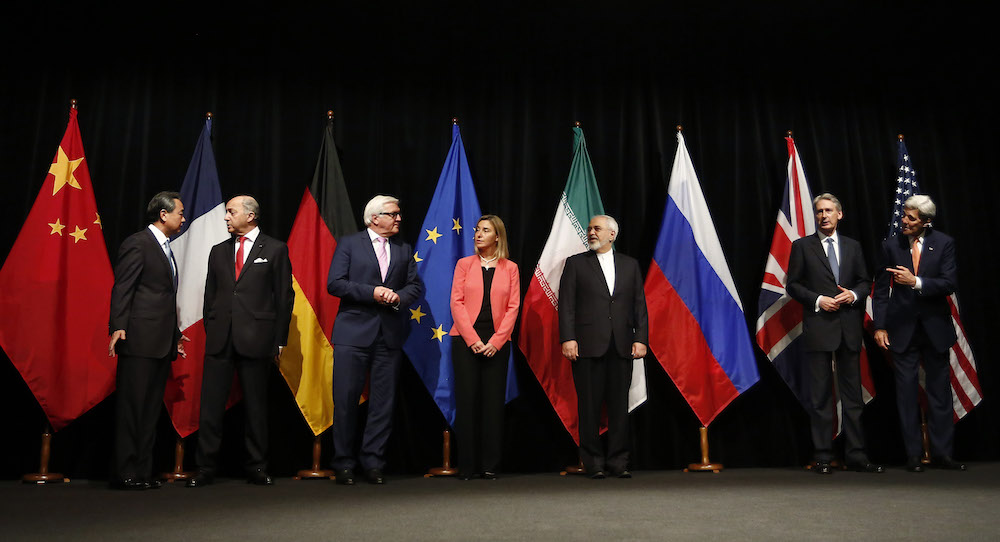January 29, 2019

Ministers/secretaries of: China, France, Germany, EU, Iran, UK, USA, Vienna, 2015. Source: WikiMedia Commons
Status of Treaties
The 2015 Joint Comprehensive Plan of Action (JCPOA) between Iran, the European Union, and six great powers is now under severe stress. The United States has abandoned the agreement and reimposed sanctions, using the privileged position of the US dollar to compel other countries not to trade with Iran. Iran has responded with a series of steps reversing selected commitments on nuclear technology. After the fifth such step, the United Kingdom, France, and Germany activated the JCPOA Dispute Resolution Mechanism, which might lead to a complete unraveling of the agreement if a diplomatic solution cannot be found. Anticipating what may come next, Iran’s foreign minister has now threatened to leave the 1968 Treaty on the Non-Proliferation of Nuclear Weapons if Iran faces any new actions at the UN Security Council.
Articles on the Iranian Nuclear Program
Select articles from the Nonproliferation Review, CNS’s peer-reviewed journal, offer a comprehensive view of the Iranian nuclear program, its geopolitical and military context, and efforts to curb it, including various perspectives on the decade of negotiations that led to the 2015 agreement. The publisher, Taylor & Francis, has made these and other select articles from peer journals free to access until August 31, 2020: The Nonproliferation Review, Asian Affairs, Global Affairs, International Journal of Intelligence and CounterIntelligence, and The Washington Quarterly.
Articles Free of Charge
Taylor & Francis, publisher, has made these articles free to access until August 31, 2020.
